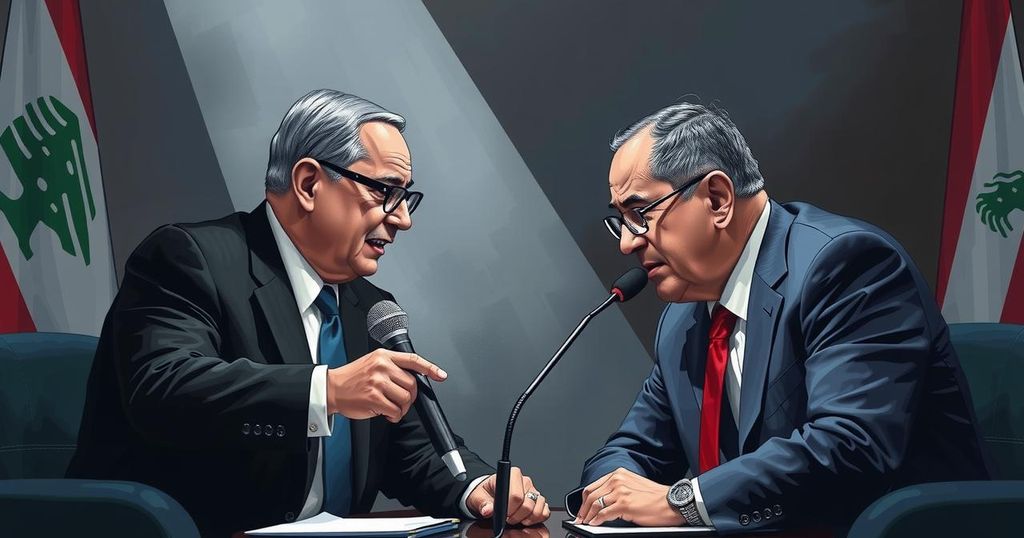Netanyahu Asserts Ongoing Conflict Despite Lebanon Ceasefire

Israeli Prime Minister Netanyahu emphasized that the conflict with Hezbollah continues despite a ceasefire. He noted serious violations of the ceasefire, leading to Israeli strikes in Lebanon. Defense Minister Katz called for the Lebanese army to dismantle Hezbollah to maintain peace, warning of severe consequences if the ceasefire fails.
Israeli Prime Minister Benjamin Netanyahu stated on December 3 that the ongoing conflict with Hezbollah in Lebanon still persists despite a ceasefire in place. He indicated during a cabinet meeting in Nahariya, “We are currently in a ceasefire, I note, a ceasefire, not the end of the war.” Netanyahu emphasized Israel’s determination to maintain peace while simultaneously addressing any violations of the ceasefire agreement, enforcing regulations rigorously against both minor and significant breaches.
Netanyahu accused Hezbollah of a serious breach of the ceasefire, which prompted Israel to respond with airstrikes targeting over 20 locations in Lebanon. Conversely, France expressed concerns, alleging Israel violated the ceasefire 52 times, including an incident that resulted in civilian casualties. Furthermore, recent Israeli military operations in Southern Lebanon reportedly led to the deaths of numerous individuals, with the Israeli forces claiming they aimed to strike at Hezbollah infrastructure and operations.
Israeli Defense Minister Israel Katz echoed Netanyahu’s sentiments, asserting that the Lebanese military must dismantle Hezbollah’s operations. He stressed Israel’s readiness to respond vigorously should the ceasefire collapse. Katz declared, “If we return to war, we will act strongly, we will go deeper, and the most important thing they need to know is that there will no longer be immunity for the state of Lebanon.” This highlights the precariousness of the current situation, as both Israeli officials maintain a hardline stance towards any potential escalation in violence.
The context of the Israeli-Lebanese conflict is steeped in a complex history of hostilities between Israel and Hezbollah, a militant group based in Lebanon. The fragile ceasefire aims to provide a temporary halt to violence, yet the situation remains volatile as both parties have demonstrated readiness to respond forcefully to perceived threats or violations. This conflict not only has regional implications but also affects international relations, particularly with nations like France, which play a role in mediation and peacekeeping efforts in the region.
In summary, the statements made by Prime Minister Netanyahu and Defense Minister Katz underscore the ongoing tensions between Israel and Hezbollah, despite the declaration of a ceasefire. Israel’s readiness to respond to any violations indicates a serious commitment to addressing threats, while the potential for renewed conflict necessitates vigilance from both the Israeli military and the Lebanese authorities. The complex dynamics of enforcement and accountability in accordance with the ceasefire agreement will prove crucial in determining the next steps for peace in the region.
Original Source: thecradle.co








